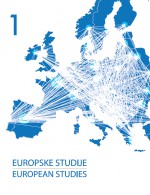Postdemokratsko stanje
Post-democratic turn
Author(s): Luka Žeravica, Anđelko MilardovićSubject(s): Recent History (1900 till today), Government/Political systems, EU-Approach / EU-Accession / EU-Development, Globalization
Published by: Fakultet političkih znanosti u Zagrebu
Keywords: post-democratic turn; transition; post-modern society; post-democracy; simulation of democracy
Summary/Abstract: This text addresses the issue of democracy during the transition from the 20th to the 21st century. The commencement of the 21st century saw post-democracy or post-democratic turn, both in the European Union and in the new democracies, both in East Europe and in South East Europe, including Croatia. Post-democratic turn, as a segment of postmodern condition, is what all consolidated and semi-consolidated democracies have in common. It is not a condition of democratic deficit (undemocracy), as it is rather a condition that post-modern democracies have faced against a new global environment, as a consequence of a comprehensive transformation of the world, a new social paradigm, global information society and globalisation. The first section of the text addresses the conditions of democracy in the world. Attention has been drawn to the idea of democracy throughout history, presenting a thesis that throughout history of political ideas, from ancient to modern times, democracy has been considered an inferior form of government. It was only following the comprehensive modernisation of the world that it flourished, both in the countries that have adopted a democratic system of governance long ago and in those transitioning to democracy, among which there is also Croatia. Subsequently, democracy is analysed against the backdrop of the idea of power, i.e. the relationship between minorities and the majority in democracy. The analysis of power is relevant for the comprehension of post-democratic turn faced by post-modern societies with a disrupted balance of power on behalf of minorities and, using the sociology jargon, between social elites and oligarchy. The second section of the text deals with transition and consolidation of democracy in Croatia. Relevant social arenas of consolidated democracy are analysed, aiming to provide insight into the status of democratic consolidation in Croatia, as well as categorization of democracy. Is democracy in Croatia consolidated or semi-consolidated in post-democratic turn? The third section of the text is striving to compare post-democratic turn in the European Union, both globally and in Croatia and highlight the simulation of democracy. Finally, a conclusion is provided presenting the insight gained following the analysis of democratic conditions in transition between the centuries.
Journal: Europske studije
- Issue Year: 1/2015
- Issue No: 1
- Page Range: 159-180
- Page Count: 22
- Language: Croatian

